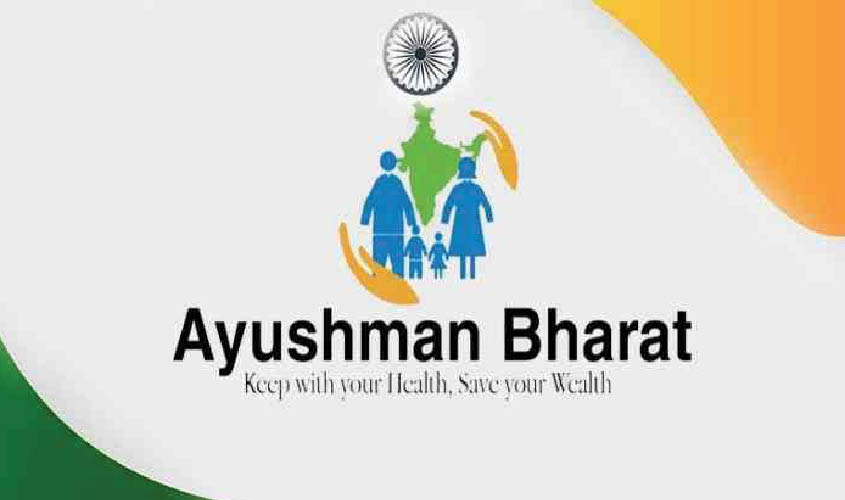Against the backdrop of inadequate state capacity and a dissolute political class, redeeming the health sector is difficult.
The Bharatiya Janata Party is delighted over Prime Minister Narendra Modi’s ambitious healthcare scheme, Ayushman Bharat, even as five states have refused to join. The government’s intentions may be good, but it takes more than good intentions to do something meaningful.
The government claims that Ayushman Bharat is the world’s largest government-funded healthcare scheme that would benefit 50 crore citizens. It would provide a health coverage of Rs 5 lakh each to about 10 crore financially weak families. Laudable objectives indeed. “The government is pursuing a holistic approach towards the betterment of the health sector. While it focuses on affordable healthcare on one hand, emphasis is also laid on preventive healthcare,” PM Modi said at the launch event. “The number of Ayushman Bharat beneficiaries is almost equal to the population of Canada, Mexico and the United States put together.”
The funding of the scheme is on a 60:40 ratio—60% by the Centre and the rest by states. However, there is no clarity on the quantum of funding. The Union Budget has a provision of just Rs 2,000 crore for the humungous scheme. Ayushman Bharat CEO Indu Bhushan believes that anywhere between Rs 6,000cr and Rs 8,000cr would be needed, whereas V.K. Paul of Niti Aayog has pegged the figure at around Rs 3,500cr.
It would be instructive here to examine the performance of a similar scheme. For the last fiscal, Rs 975cr was allocated for the Rashtriya Swasthya Bima Yojana (RSBY), which has been subsumed under Ayushman Bharat. The allocation was scaled down to Rs 565cr. The release was even less, Rs 450cr, said a parliamentary panel’s report. “Funds as Central share of premium under RSBY of approximately Rs 450 crore were only released for such states that submitted their proposal during the year 2017-18,” said the Parliamentary Standing Committee on Health and Family Welfare in its report in March this year.
It must be mentioned here that the RSBY was a much less ambitious scheme, providing a limited coverage of only Rs 30,000. The parliamentary committee also pointed out low enrolment in the RSBY. “Only 57 per cent of eligible are enrolled and less than 12 per cent of the eligible persons got their hospitalisation covered through RSBY.”
The panel wanted the government to “ensure that inadequacies plaguing the operation and implementation of RSBY are not repeated”. The government has gone several steps ahead; instead of repairing and revamping a modest programme that was poorly implemented, it has come up with a much bigger one. How it will be implemented is unclear.
Evidently, the government and the ruling party are convinced that making big, grand announcements impresses the electorate as doing good work. In this context, good work would have meant painstaking analysis of the shortcomings of the RSBY and the requisite rectification. It would have been a long-drawn-out process involving commitment, diligence, and persistence. Announcing a bigger scheme is much easier; and it’s an event to boot, offering an opportunity to indulge in pomp and pageant.
This brings us to the moot question is: would Ayushman Bharat, touted as a “game-changer”, succeed? The short answer is: not sure. The reason is simple: the success of any welfare scheme is a function of the efficiency of administration or, what experts call, state capacity; and there has been little enhancement in state capacity since Independence, the lip service
For the welfare state, first and foremost, a state, and the Indian state, as it exists today, is rickety and sclerotic. It is incapable of carrying out even the most basic and essential functions: protecting the life, liberty and limb of citizens. There have been reports from several states of synthetic milk and its products—that is, milk made out such hazardous substances as urea and detergent. Adulteration in edible items is rampant. Likewise with medicines.
Unconscionable activities about the establishments mandated to provide shelter and safety to children have come to the fore. There are a myriad of monitoring mechanisms—the social welfare departments, the Central and state commissions for women and children, the district administration, the local police, local intelligence units, local media, local NGOs, et al. Yet there were Muzaffarpur and Deoria. There was Brajesh Thakur accused of whipping, raping, and pimping young girls, some in preteens. And there are canting politicians who seldom use the term “girl children”; they say “hamaari betiyaan” instead!
Against the backdrop of grossly inadequate state capacity and a dissolute political class, one has to work to believe that Ayushman Bharat would redeem the health sector. A bureaucratised state that fails to carry out its primary duties cannot be expected to do wonders in the social sector.

